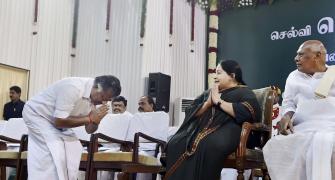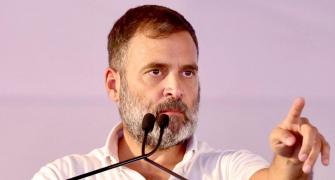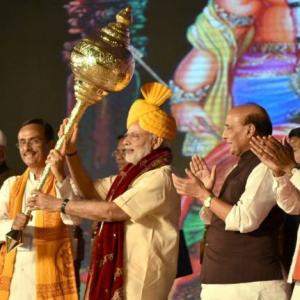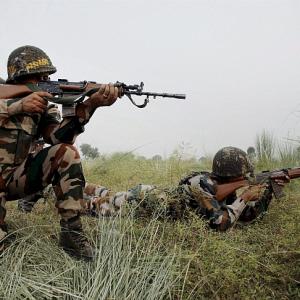With the political climate between India and Pakistan going through a tempestuous time over repeat aggression from the Pak side and with recent developments in the Kashmir valley there needs to be a long-term solution to the extant Kashmir problem, says Subir Roy.
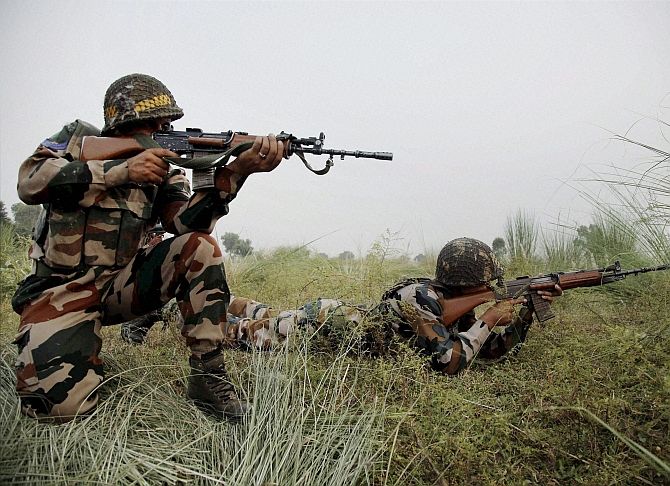
At a time of heightened India-Pakistan tension over Kashmir, the least that needs doing is avoiding obvious errors and strategies that blow up in your face. This does not seem to be the case, going by the two most recent developments.
The first is over water. In light of the Uri attack, the prime minister said at a meeting on the Indus water treaty between India and Pakistan that “blood and water cannot flow together.”
With alacrity, official sources in China reported that a tributary of the Brahmaputra in Tibet had been blocked for a massive hydroelectric power project. This could affect the flow of water into the Brahmaputra.
Several Indian rivers originate from the Tibetan plateau and China has an enormous advantage over India is being able to use the flow of water into these river systems to serve its diplomatic objectives vis-à-vis India.
And considering the way China has backed Pakistan over disputes with India, the last thing India should do is prompt China to use water as a diplomatic tool.
But this is precisely what has happened. It is likely that India will not mention relooking at sharing of Indus waters as one way of getting back at Pakistan in view of this fracas but the question remains: Was raising the issue of Indus waters a thoughtless act that has had a negative fallout?
Now, let us look at the “surgical” response to the Uri attack. One of the reactions available to India, which will not escalate India-Pakistan tensions into out of control hostilities, is to come up with a swift, controlled response that cannot be considered a major military venture but makes a point, gets at a target, source of terrorism, with precision and the forces or commandos return as quickly as they went in.
By its very nature, such an act will not allow Pakistan to use it as an excuse to engage in wider conflict. The obvious historical parallel is the Entebbe raid by Israeli commandos to free hostages.
Such an action will generate as much publicity, domestic and international, as the provocation, the Uri attack, and enable India to be seen as powerful, militarily competent, restrained and responsible.
What happened? India announced with great fanfare that it had conducted such a surgical raid on several locations that housed terrorists and inflicted significant casualties. But the script went haywire thereafter.
Embarrassingly, UN observers for the India-Pakistan border in Kashmir said they had not “directly observed” any firing. The Pakistani reaction was quite different from what would have been the case had there been blood on the ground - outrage and affront at the violation of its territorial integrity and promise to teach India a lesson.
Instead, the Pakistanis were asking: What surgical action? The Pakistani military even took a group of journalists, domestic and foreign, to one of the locations of surgical action identified by India and life there was going on normally, no sign of attack, no evacuation, no mourning.
There appears to be a fair bit of skepticism in the international media over the Indian claim and there is no publicity advantage for India. Quite the reverse.
In fact, ineptitude has been the hallmark of Indian action in Kashmir going back over the decades during which it is mostly the Congress which had been in charge. Unfortunately, little appears to have changed.
The forces’ brass clamour loudly for freedom to take retaliatory action in periods such as these but security lapses on our part continue. The brigadier under whose command the Uri camp was has been transferred and an enquiry instituted into the lapses that resulted in such high Indian casualties.
The militant attack at Uri comes in the wake of the widespread disturbances that have gripped the Kashmir valley after anti-terrorist action killed Burhan Wani. The point being made is that the public reaction could have been foreseen and countering it made part of a total action plan. That was not the case.
What is worse is that the security forces are ill equipped to handle civilian uprisings and the police are not using modern non-lethal weapons of crowd control. If shot guns spewing pellets have put in danger the eyesights of as many as a hundred then they can hardly be called non-lethal. More effective and less harmful methods and equipment to counter street protests remain as far away as ever.
Popular attitudes in Kashmir have to be understood before they can be addressed. An opinion survey indicated that unemployment, corruption and the Kashmir dispute were important issues. It is surely entirely in Indian hands to address the first two.
Popular disaffection over lack of opportunity lies at the root of public action ranging from Kashmir to Gujarat (Patels) to Maharashtra (Marathas), not to speak of Dalits. Surely, agricultural distress is more fundamental than militancy. The last good thing that happened to rural India was the employment guarantee scheme.
Once the back of militancy was broken in Kashmir things were allowed to drift instead of using the gain to forge a political solution. The responsibility for this slideback rests foremost with the Congress but also with the Bharatiya Janata Party.
Now that a new dispensation led by the BJP is in power at the centre and Chief Minister Mehbooba Mufti survives on the say so of the BJP, it is critical to be told what long-term perspective has been brought to bear on Kashmir in the last two years.
It will be a sad day if Bahujan Samaj Party Chief Mayawati turns out to have given the best explanation for all that has happened recently.
She told a recent pre-election rally on Samajwadi Party Chief Mulayam Singh’s home turf, “To divert attention from the failure of the BJP and the Centre, the government can go to war on the issue of Pakistan and terrorism.”


